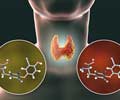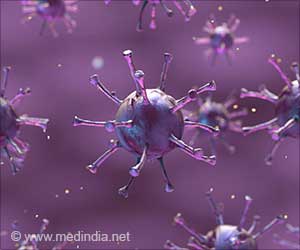Study discovers atypical thyroid inflammation in patients with moderate to severe COVID-19.

Ilaria Muller, lead researcher, explains that while people with thyroiditis (inflammation of the thyroid gland) triggered by other viruses usually recover thyroid function in the short term, there is a long-term increased risk of permanently reduced thyroid function, caused by late-onset effects of viral infection, or by the immune system attacking the thyroid gland
In 2019 only 1% of the COVID-19 patients hospitalized in acute medicine units in Italy before the pandemic had thyroid hormone alterations, however this number increased to 15% in 2020.
Muller wanted to determine whether COVID-19 related thyroiditis follows the same pattern as thyroid inflammation caused by other viruses. She monitored the thyroid function of patients with moderate to severe COVID-19 every three months after being hospitalized. For this, the patients underwent routine blood and ultrasound testing.
Findings showed that COVID-19 related thyroiditis differs from typical thyroiditis in several ways - absence of neck pain, presence of mild thyroid dysfunction and higher frequency among men.
All of the 53 patients who have completed the three month evaluation have had normal thyroid function.
Advertisement
"We are continuing to monitor these patients to see what happens during the following months. It is important to know whether SARS-CoV-2 virus has late-onset negative effects on the thyroid gland, in order to promptly diagnose, and eventually treat, the condition."
Advertisement
Source-Medindia















